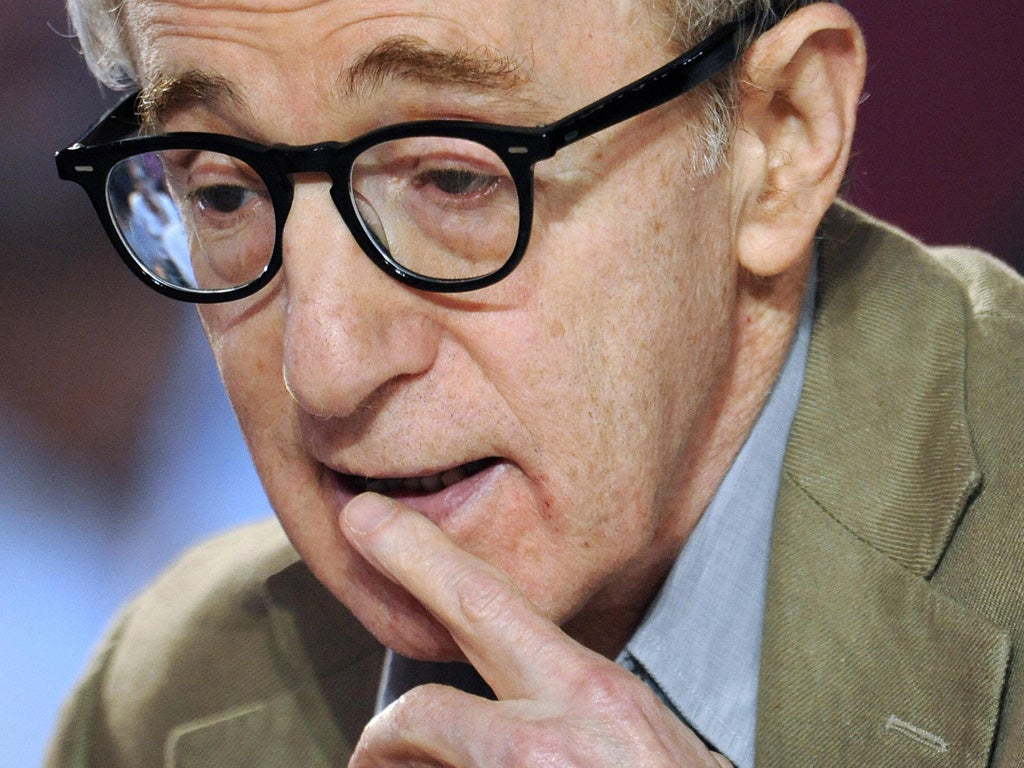Antisemitism among friends: It's not acceptable to let it slide
Comments like "very Jewish" shouldn't be part of everyday rhetoric; it's our duty to bring people up on it.

Your support helps us to tell the story
From reproductive rights to climate change to Big Tech, The Independent is on the ground when the story is developing. Whether it's investigating the financials of Elon Musk's pro-Trump PAC or producing our latest documentary, 'The A Word', which shines a light on the American women fighting for reproductive rights, we know how important it is to parse out the facts from the messaging.
At such a critical moment in US history, we need reporters on the ground. Your donation allows us to keep sending journalists to speak to both sides of the story.
The Independent is trusted by Americans across the entire political spectrum. And unlike many other quality news outlets, we choose not to lock Americans out of our reporting and analysis with paywalls. We believe quality journalism should be available to everyone, paid for by those who can afford it.
Your support makes all the difference.
It was the Nazi salute that grabbed my attention as I lowered down into a deep knee bend at a recent Pilates class. The middle-aged mum next to me stopped short of shouting Heil Hitler as she jutted her arm out in front of her and joked that our group resembled Nazi soldiers as we marched across the floor of the Quaker House in northwest London.
While the infamous salute falls short of physical violence or a verbal tirade of Mel Gibson proportions, the situation illustrates a dangerously subtle tolerance for antisemitism that thrives in London’s seemingly sophisticated international communities.
In 2011, 586 abusive incidents were reported to the Community Security Trust, an organization that tracks antisemitism across Britain. And in London, 48 per cent more abuses against Jewish people have been reported in the first half of 2012 than in the first half of 2011, according to CST. While not insignificant figures, I’m not surprised by the frequency of these reported offenses because I find myself constantly cringing at behaviors from people I would expect to show more depth of character.
The incidents outlined in CST’s report range from swastika graffiti to verbal abuse and physical violence. In my experiences, people attack with words, not shouted in anger, but spoken casually in civilized conversations. Without hesitation, people assume - either because I speak with a southern-American accent or because I have blond hair and blue eyes - that I couldn’t possibly be offended by a thinly veiled knock at Jews.
As an American, I would expect this kind of behavior in a provincial town in the southern United States, like the one where I grew up. But what I’ve learned living in London is that antisemitism isn’t only the business of ignorant fanatics, but it also thrives among the well-educated, successful, cosmopolitan set that I bump into in the international community.
I recently sat around a table with a room of accomplished men and women at a posh dinner party in Chelsea, when the conversation turned to where the party guests lived in London. One of the guests joked that flights to Hampstead, where we live, would be leaving soon. Everyone chuckled, and then our host interjected that besides being far from Chelsea, Hampstead was also “very Jewish.”
Confused about how to respond, but not naive, I internalised my discomfort and sat quietly stunned. Very Jewish - hmmm - this clearly wasn’t a reference to population density.
My husband, Brian, and I both let the moment pass. But at home later that night, Brian vowed never to let another antisemitic comment, however subtle, go unchecked.
Soon after that evening, Brian had his chance to address bigotry head-on. An investment banker in the city vented that he had had enough of the New York Jews at his previous job, so he was looking to distance himself from them.
Brian, a potential client, hit back in an email, saying: “Since I have family and friends in New York and am Jewish, we obviously can’t work together.”
It’s been harder for me to take people to task because I’m uncomfortable with conflict and never know what to say in the moment. In a different situation, a mum at my daughter’s school described another as having that “north-London-Jewish sing-songy voice.” Again, in my attempt to keep the peace, I chickened out and settled for dissecting the situation later with Brian.
In its harshest forms, antisemitism results in clear acts of abuse, like those reported to CST, and even death. But in the nuanced world of closet racists, parents say stupid things, kids follow them and pretty soon, antisemitism is pervasive.
I know that many of the people in the situations I have described might argue that they didn’t mean any harm by their words or actions. Thoughtlessness, however, perpetuates bigotry.
Last week, Rosh Hashanah celebrations kicked-off ten pensive days of self-reflection for Jewish people around the world, which culminate this week with one of Judaism’s most revered holidays, Yom Kippur, the Day of Atonement.
In the spirit of Yom Kippur, I have found myself reflecting on my own increasingly serious personal sin: politely ignoring antisemitism among friends. It’s time for me to put my hand up, not in Hitler’s infamous salute, but in defense of my Jewish family and friends and hold people accountable for hurtful rhetoric.
Join our commenting forum
Join thought-provoking conversations, follow other Independent readers and see their replies
Comments